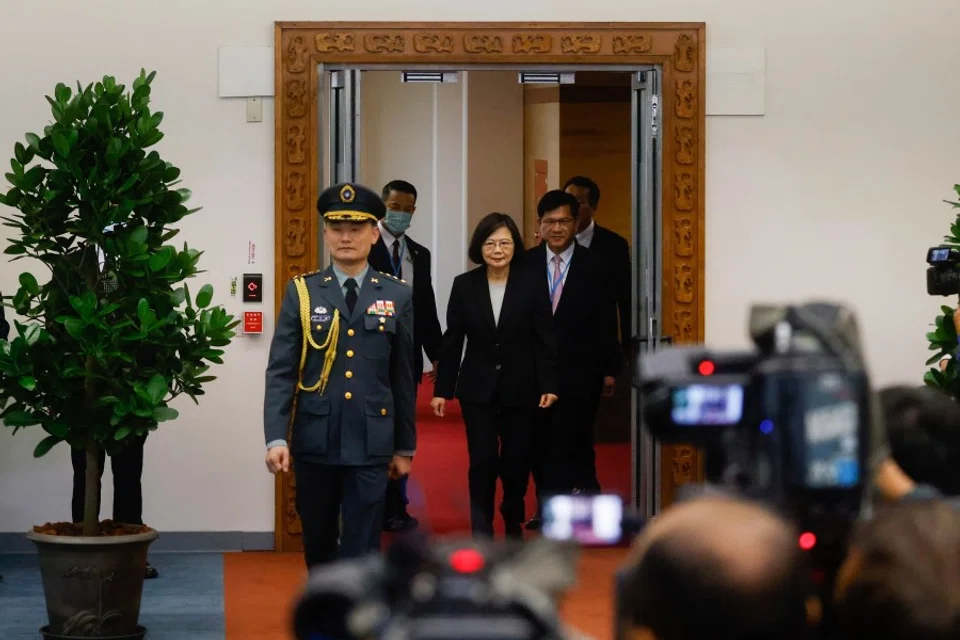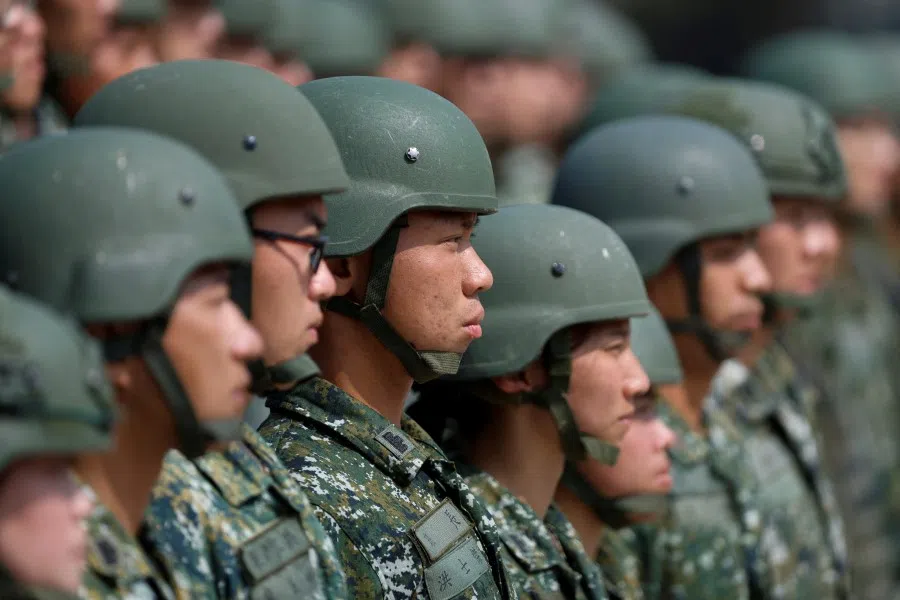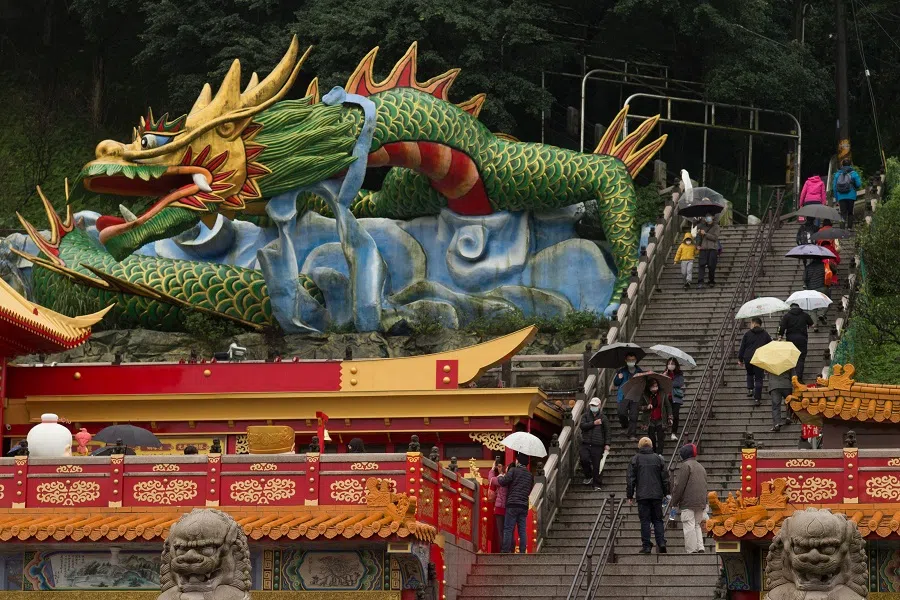The US is just as wary of Taiwan as of China
Academic Deng Qingbo says that US elites are not only in fear of China's rise, but they are also deeply concerned about Taiwan's immense potential in technological advancement, geographical position, and cultural depth and resilience. The two combined will be a nightmare for the US.

During a recent webinar, veteran retired US diplomat Susan Thornton said that the most important thing now for the US is to avoid war with China, and the only likely place that a military conflict might happen is over Taiwan. She urged the US to "ratchet back some of the more adventurous kinds of actions" that it is taking in its approach to Taiwan, and "move back into the framework of a One China policy".
Fear of a rising China in technology
The US is currently ramping up arms sales to Taiwan, pushing through a series of laws relating to Taiwan, and raising the level of US-Taiwan exchange. It even wants to deploy officials to station in Taiwan, and has invited Taiwan President Tsai Ing-wen to speak in the US, which mainland China criticises as undermining the "one China" principle.
Confronting mainland China on the Taiwan issue is a rare consensus between the Democrats and the Republicans in the US, so Thornton's call is certainly unconventional in US political and academic circles.
In fact, the US is taking this approach because American elites are also wary of Taiwan's development and achievements.

Thornton was the former acting assistant secretary of state for east asian and pacific affairs, and is deeply aware of the historical dimension and sensitivity of the Taiwan issue. Logically, her call should gain a lot of attention in the US political scene. However, she admitted that what has to be done would be "probably politically impossible in the United States".
In general, people believe that the US is more frequently playing the Taiwan card now because it is afraid of China's rise and is trying to worsen the situation in the Taiwan Strait to manipulate and hinder China's development. In fact, the US is taking this approach because American elites are also wary of Taiwan's development and achievements.
Taiwan has shown strong growth and achievements with TSMC chip technology dominating the world. The rise of Huawei and other technology companies in mainland China that match up to Taiwan's TSMC is also providing irrefutable proof that once both sides of the Taiwan Strait come together and complement each other, that would be a nightmare for US technological and economic dominance. This is why US President Joe Biden and his administration did all they could to have TSMC set up a factory in the US, which reveals the deep-seated anxiety and fear among the American elites.
Taiwan could become the new frontier of China's rise
American elites are also wary of Taiwan's geographic value. Taiwan is located southeast of mainland China, and its geographic value has evolved alongside the situation in mainland China.
Taiwan could become mainland China's most strategic vanward base to enter and leave the ocean. The first island chain that the US so carefully built will fall apart...
When China was poor and weak, Taiwan was an "unsinkable aircraft carrier" guarding the first island chain, the best base from which Western powers could contain and suppress mainland China. Now that China is strong and politically stable, Taiwan's geographic value is also changing.
Given its close proximity, Taiwan cannot resist the pull of mainland China. When cross-strait relations ease and both sides take gradual steps towards reconciliation and even reunification, Taiwan could become mainland China's most strategic vanward base to enter and leave the ocean. The first island chain that the US so carefully built will fall apart, and the so-called second and third island chains will be reduced to exist in name only.

Thus, the US's growing tendency to strengthen its infiltration and control of Taiwan and its repeated playing of the "Taiwan card" in fact exposes its deep concern about cross-strait reunification and Taiwan becoming the new frontier of China's rise.
American elites are worried about Taiwan's cultural resilience as well. On the surface, the Democratic Progressive Party (DPP) has been advocating "de-sinicisation" since it came to power, and a decreasing number of Taiwanese, especially the younger generation, self-identify as Chinese. People on both sides of the Taiwan Strait seem to be drifting apart.
However, although Taiwan was ceded to Japan by the Qing court in 1895 and was governed as a colony of imperial Japan for half a century until 1945, it did not lose its cultural identity, and was not completely "Japanised". The majority of Taiwanese people have continued to speak Mandarin and retained Chinese customs.
While both sides of the Taiwan Strait have been separated for over a century, Chinese cultural heritage is in many ways better preserved and passed down in Taiwan than it is in the mainland.
... they can neither fundamentally annihilate the Chinese cultural genes of the Taiwanese people nor cut off the possibility of cross-strait reunification.

Although the DPP is striving to advance "de-sinicisation", its arguments are mostly fallacious, and so they can neither fundamentally annihilate the Chinese cultural genes of the Taiwanese people nor cut off the possibility of cross-strait reunification. Even former Taiwan President Chen Shui-bian once said, there's just no way that Taiwan independence can be achieved. In that sense, the US could very well lose Taiwan as a strategic bulwark against mainland China, and this is what frustrates and worries American elites.
Thornton asserts that the Taiwan issue has always been a "huge problem" in China-US relations because Taiwan "was the one place where we can get into a conflict". But the US is now using Taiwan as a "cudgel" in the deteriorating China-US relations, and this is "extremely dangerous" for Taiwan especially, and for China, the US and the rest of the world.
In fact, American political elites may already be aware of Thornton's concerns. However, the fear of mainland China's rise as well as that of Taiwan itself, is deep enough to compel American elites to push forward their plans. They believe that it is better to take full advantage of Taiwan's strategic value before it reunifies with the mainland, and to destroy this value afterwards, no matter how risky it may be.

Franklin D. Roosevelt, the 32nd US president, said, "The only thing we have to fear is fear itself." Fear often drives people to make irrational choices, and this is also true for American political elites, who should try to approach mainland China's rise and Taiwan's strategic value with a more positive and open attitude.
Indeed, fear does not solve problems but only leads to irrational hysteria and puts US policies in a bind. This increases the risk of the US making bad decisions about China, which could then bring the US, China and even the world to a tragic end.
Related: When Beijing no longer minces its words about the US | Can Taiwan stay safe in the next decade? | What if US House Speaker Kevin McCarthy visits Taiwan? | What could stir up trouble in the Taiwan Strait in 2023? | Will TSMC's American plant lead to an exodus of semiconductor talents from Taiwan? | 'Resist China, protect Taiwan' becoming a consensus in Taiwan





